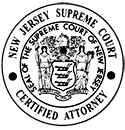5.12 GROSS NEGLIGENCE (Approved 2/04)
In defense to the plaintiff’s claims, the defendant, claims to have been acting within the course and scope of his/her duties as [insert the defendant’s claimed position and membership in an organization or governmental activity with qualified immunity from suit, e.g., compensated sports official, fire fighter, a member of a state professional board, an organization or entity deemed operating in the public interest].
If you find that the defendant, was exercising or discharging a function associated with [insert the appropriate organization or government activity] and that the defendant was acting within the course and scope of his/her official duties, then in order to find for the plaintiff and impose liability upon the defendant, you must determine that:
- The defendant was grossly negligent, as I will hereafter define the term; and
- The defendant’s gross negligence was a cause of the plaintiff’s loss.
To determine gross negligence you should consider what a reasonable person would or would not do under the same or similar circumstances as shown by the evidence.
Negligence is the failure to exercise ordinary or reasonable care; that is: what would be the conduct of an ordinarily prudent, careful person in the same or similar circumstances as the defendant found himself. The defendant’s conduct is then measured against what an ordinarily prudent, careful person would have done or would have avoided doing.
In this case, the plaintiff must prove more than negligence. The plaintiff must prove gross negligence.
Gross negligence is an act or omission, which is more than ordinary negligence, but less than willful or intentional misconduct. Gross negligence refers to a person’s conduct where an act or failure to act creates an unreasonable risk of harm to another because of the person’s failure to exercise slight care or diligence.
To find gross negligence the facts as you find them at the time the defendant acted or failed to act must be such that the consequences of the defendant’s conduct could reasonably have been foreseen. It must appear that the injury was not the result of inattention, mistaken judgment or the failure to exercise ordinary or reasonable care. Rather it must appear that the injury was the natural and probable result of the failure to exercise slight care or diligence.



